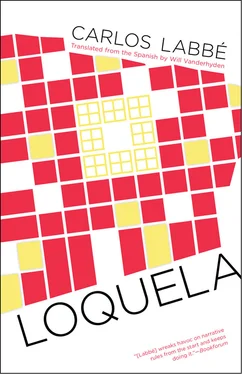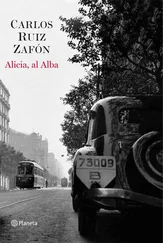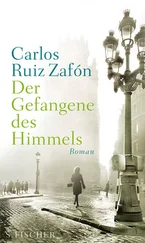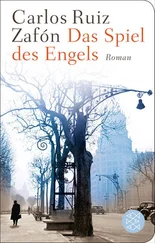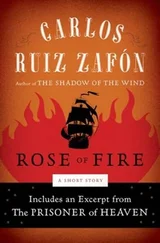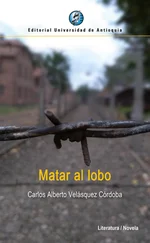Suddenly the boy, that strange boy who was watching the albino girl with feverish eyes and incessantly taking notes, jumps up from his seat like a hungry animal; with a crack he slams his notebook down on the linoleum and takes off running toward the door. He disappears into the hallway. The professor makes an ironic comment. The albino girl, the only person not laughing, gets up to go to the bathroom; they meet on the quad. He is sitting in the sun, his look is different, it seems to be directed at something very far away, lacking the permanent shadow of worry that had previously marked it. She sits down next to him. They talk for a while, calmly, as if they’d been together for years, as if they were married and they both knew the exact amount of time it took the other to say something. I don’t know if they kiss or lean in close to share a secret that no one, absolutely no one else can hear. Then he takes a wallet out of his backpack and from the wallet he removes two bus tickets. She moves her head, we suppose that she’s agreeing to go on a trip with him, but where are they going? He asks her what time it is and they get up and walk together down the hallway toward the campus entrance. He looks at everything along the way with tenderness: it’s the last time that he’ll pass this way, that he’ll perceive the aroma of photocopies, the posters promoting parties or offering to share an apartment’s rent, the last time he’ll hear the phrases of friends greeting each other, the condescending tone of a professor who bumps into a student leaving the bathroom, heading toward the quad of the drama department. I choose to follow the boy and not the girl, in the moment that they separate: he walks down Calle Los Leones, takes the metro of the same name, stares at the faces of the passengers the whole ride, gets off with the majority of them at the Universidad de Santiago station, heads with his backpack toward Terminal Sur. It’s not a big deal, I think, he must be going to visit his parents in Rancagua; but he boards a bus whose destination I don’t recognize, a bus that surprises me not because of the color of it’s paint or because of how few people occupy its seats, but because of the name of its destination: Neutria. I wave to the driver, the engine is already in drive. The baggage handler asks me if I have more luggage, I shake my head.
He glances nervously at his watch. Out the window he recognizes a short girl running in vain to catch the bus, already pulling away from one of the platforms, he tries to remember her name but cannot. He clings to his backpack like a child bound for the unknown as the bus begins to pick up speed. He thinks that right now Alicia is frightened in her room, that she has locked herself in, and is studying the portrait of Violeta or of herself on the beach, with dark sunglasses and a black dress in the middle of summer. He doesn’t want to be dead, and yet he’s moving toward Neutria. In the seat next to him an unfamiliar woman is sleeping, he looks out the window, I look out the window at the landscape that grows steeper all the time, full of rocks, precipitous, dangerous. Suddenly I see that it’s snowing, that snow is falling from the sky and the bus will have to stop.)
The doorbell rang. Carlos muted the TV and hurried to turn on lights in his bedroom, the hallway, the living room, and the kitchen, as well as the lamp outside. He was about to turn the knob, just as the doorbell rang for a second time. Elisa was waiting for him, almost falling against the door, with a smile that vanished just as soon as her arms touched his and, instead of greeting her, Carlos asked a question: had she lost her key? She was having trouble speaking, could they please close the curtains and turn off the lights, she said, so that no one would see them from the street. Then, in the armchair, she wrapped her arms around her legs and buried her face between her knees: there was something Elisa didn’t want to see, or wished she’d never witnessed, thought Carlos as he went through the house flipping switches. In the kitchen he found a long white candle; he lit it, let a few drops of wax fall in an ashtray, stuck it there, went to the living room, and sat down timidly next to his girlfriend. Outside a strange wind was blowing, it made the windows vibrate. Gently she stretched one arm across his chest, murmuring that tonight there was a full moon. I had another bad dream, she said, like back in high school: she found herself in the faraway south, on the ranch of one of her father’s friends, a pampa of such uniformly short grass that, from where she’d materialized, she could see, in the distance, the inhospitable waves of the Strait of Magellan. The landscape was empty, as if the hundreds of cows, the house, and the garden had been uprooted by a storm. She was running, unable to stop, across the pastures, struggling, soaked by rain, to advance through the mud, she could make out the sea and experienced a feeling akin to hope; then she tripped. She stayed on the ground looking at the palms of her hands and her scraped knees, dirty, bleeding. When she lifted her head and continued to run, she discovered that the hopeful vision of the sea was, suddenly, terrifying. None of her muscles obeyed her. On the shore was a boat that appeared ready to launch, to save itself from the imminent rising of the storm. Or maybe she fell again and saw, in the distance, the boat begin to depart without her. They couldn’t wait for her anymore. Before she lost sight of the crew in the shadow of the storm, she was able to make out the silhouette of Carlos, an oar in his hands, his posture severe. Then she ran on, the mud came up to her knees and she was drenched; crying, she fell to the ground again. When she saw the empty sea, she felt calm for a moment, allowing herself to forget the need to reach the shore, until the vessel reappeared in which Carlos and the others made the decision to leave her behind one, ten, a thousand times.
What I knew would happen has happened, but the flow of these pages has carried it far away, to the point of transforming it into the irredeemable — the only true word among these I’ve written to you — into a light that flickers in the distance, like a cruel lighthouse that lures you to the rocks, to collision: my notebook pages have run out, I wrote two words in the empty space beyond the white, on the table. Better still is the image of a lighthouse extinguished in the cloudy Neutrian night; I reminded myself that I’m writing you so that the two of us might see each other before this is over. Imagine a lighthouse abandoned in the night, and you trapped in the darkness of that lighthouse, and me in a boat without oars, adrift.
Me, you, the lighthouse, and the boat occur to me with the certainty that today I am departing, now that Neutria has left me for the last time. You don’t realize that the only way to enter this city is to remove it from inside me, liberating that which I invented out of my presence so that anyone at all might inhabit it; the certainty that the end of my life in Neutria is the end of my life strikes me all at once, like a branch being torn free by the wind and falling on the roof of this house. How foolish I was to flee from the city of my childhood so that He Who Is Writing the Novel wouldn’t follow me, as if it were possible for one to choose between soul and body, as if staying alive depended on keeping the body far away from the gunshots and the blades, though my soul — just like there exist abandoned boats, floating at high sea — has stayed in Neutria and this body continues writing to you in Santiago. Finding myself in my grandmother’s house — when you rang the doorbell and laughably pretended to be someone else, someone named Carlos, and called me The Little One — I became aware that you wanted to enter Neutria through me, but I didn’t let you. You wanted to make your soul enter my body and, because this is impossible except through writing, I wrote you one, two, three novels in order to please you. I’m leaving them here for you, on this table in an envelope — if you dare to take it when you come — where between simulacra you will see that you are in fact entering an other: yourself. And because we die we have no body; it’s another deception of those who’ve studied everything, of your friend the professor, who even planned that I should write this last letter.
Читать дальше
